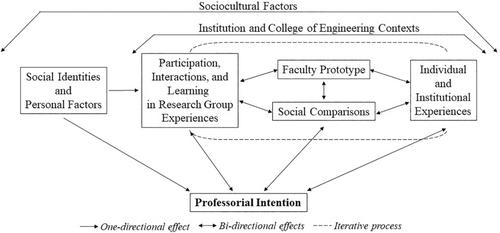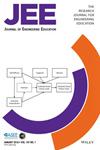Professorial intentions of engineering PhDs from historically excluded groups: The influence of graduate school experiences
Abstract
Background
In addition to the benefits of a diverse faculty, many institutions are under pressure from students and administrators to increase the number of faculty from historically excluded backgrounds. Despite increases in the numbers of engineering PhD earners from these groups, the percentages of Black/African American and Hispanic/Latino tenure-track faculty have not increased, and the percentage of women remains low.
Purpose
The purpose of this study is to identify how experiences in graduate school encourage or deter PhD earners from historically excluded groups in pursuing an engineering academic career.
Method
We conducted 20 semi-structured interviews with engineering PhD students and recent graduates, with half of participants interested and half disinterested in pursuing an academic career after graduation.
Results
Three key factors emerged as strongly influential on participants' desire to pursue an academic career: their relationship with their advisor, their perception of their advisor's work–life balance, and their perception of the culture of academia. Participants extrapolated their experiences in graduate school to their imagined lives as faculty. The results illuminate the reasons why engineering PhD earners from historically underrepresented groups remain in or leave the academic career pathway after graduate school.
Conclusions
The findings of this study have important implications for how graduate students' and postdoc's relationships with their advisors as well as perceptions of their advisors' work–life balances and the culture of academia affect future faculty. We make recommendations on what students, faculty, and administrators can do to create a more inclusive environment to encourage students from historically excluded groups to consider academic careers.


 求助内容:
求助内容: 应助结果提醒方式:
应助结果提醒方式:


